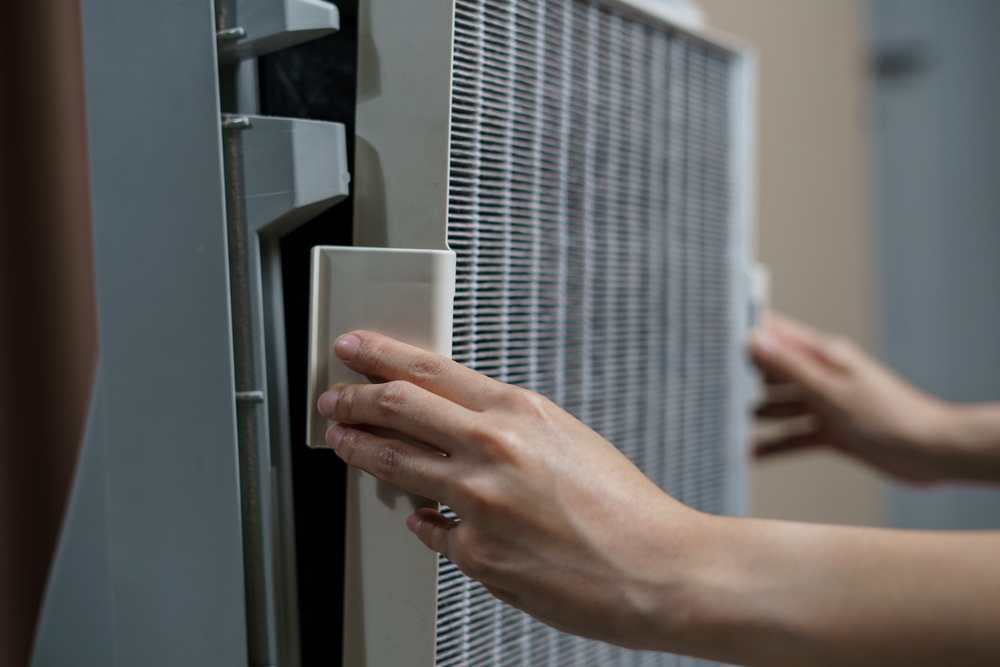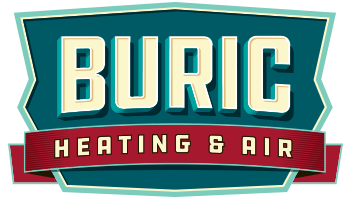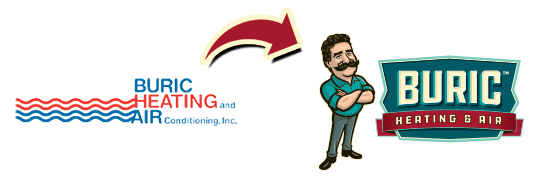
Every year, millions of allergy sufferers wake up sneezing with itchy, runny noses, and red, itchy eyes. While allergies aren’t a good look, they are more sinister than that. Some people experience allergies so severe, they have to visit a physician. Others, especially children, end up with sinus and ear infections.
Although many people turn to over-the-counter medication and sometimes steroids, there’s another option to consider, and it starts in your home’s HVAC system: a HEPA filter.
What Is a HEPA Filter?
Standing for “High-Efficiency Particulate Air,” a HEPA filter is a specialty type of air filter that takes air conditioning to a new level. The thing that makes a HEPA filter such a stand-out in the air filtering world is the fact that they can trap a larger number of the smallest particulates in the air.
Not only is a HEPA filter designed to filter out and remove more particulates, it’s designed to protect you from the smallest particles possible. Able to filter out particles as small as 3/10 of a micron, HEPA filters are working to remove the smallest air particles of any filter on the market.
Types of HEPA Filters
It’s easy to talk about how great HEPA filters are, but it’s important that consumers know the different types of HEPA filters they might see. Depending on which HEPA filter you choose, you will get more or less particle filtration.
True or Absolute HEPA Filters
To have a True or Absolute HEPA filter is to know with an assurity that you have the absolute best filter on the market. Because true or absolute HEPA filters must first be tested and meet specific standards to be sold on the market, you can know that you are getting the most filtration of the smallest possible particulates.
Each true or absolute HEPA filter has a serial number. That serial number is connected to the tests that have been run on each individual true or absolute HEPA filter. The test results should be printed on the filter and show the percentage of filtration of those tiniest of particles.
Each true or absolute HEPA filter should be able to trap at least 99.97% of particles measuring at 0.3 microns. This is the smallest particle any filter on the market can trap and true or absolute HEPA filters trap them at a higher percentage than any other filter on the market.
Because true or absolute HEPA filters are so effective and go through such rigorous, verifiable testing, they tend to be more expensive. Yet with that expense, you are getting a guarantee of their functionality and efficacy.
HEPA-Type Filters
Although HEPA-type filters are made in a similar way as the true or absolute HEPA filters, they aren’t required to meet the same standards as a true or absolute HEPA filter. Because of that, you might see that your HEPA-type filter might only capture and filter out between 85% and 90% of the particles.
Depending on how each individual HEPA-type filter, the efficacy of the filter might only be for particles that are larger than the 0.3 microns that true or absolute HEPA filters remove from the air. If the particles are smaller than 0.1 microns, the percentage that is filtered out likely drops.
The other thing differentiating a HEPA-type filter and a true or absolute HEPA filter is the presence of a serial number. While a true or absolute HEPA filter has the serial number printed on the filter itself, a HEPA-type filter won’t have one at all.
HEPA Replaceable Filters
The other distinction to make when choosing your HEPA filter is whether or not it’s replaceable. As for HEPA replaceable filters, they will trap the airborne particulates until they become full. At that point, you replace them. Easy, right?
One of the benefits with a HEPA replaceable filter is that you don’t have to worry about contaminants and particulates being recycled and recirculated through your air. There’s reassurance it’s working.
HEPA Permanent Filters
With a permanent HEPA filter, as the name suggests, you have a permanent HEPA filter installed for the long haul. These will likely become like another member of the family, one that requires care and some maintenance.
Every two to three months, you’ll need to wash your permanent HEPA filter. Using a fine bristle brush and warm, soapy water, you’ll need to clean your HEPA permanent filter thoroughly. You’ll follow that up with a thorough rinse. After you let your permanent filter dry for at least 24 hours, you can pop it back in your HVAC unit and you’re good to go.
While this process is a little more involved than that of a replaceable HEPA filter, these are great for those who are sensitive to pet dander. And while they require some hand cleaning, they are better for the environment and can end up saving you money in the long run.
HEPA Filters and Seasonal Allergies
When it comes to using HEPA filters to help reduce seasonal allergies, it’s important to know there are few studies that actually look into their efficacy.
While it’s unclear what the full impact of a HEPA filter is on your seasonal allergies or your seasonal allergy symptoms, it is clear that HEPA filters do an excellent job of cleaning the air, better than any other filter on the market. And because true or absolute HEPA filters catch the smallest particles of any filter on the market, there is some evidence that they can work against the presence of pollen in your home.
One reason for the vague answer about the efficacy of HEPA filters in relation to seasonal allergies is that results depend on certain factors:
- Location of the HEPA filter
- Installation
- The flow rate
- How long it’s operating during the day
- Conditions of your home
- Ventilation throughout the home
All that being said, if you’re a seasonal allergy sufferer, a HEPA filter definitely won’t hurt. It’s your best bet at finding some added relief to your allergy symptoms.
What to Look for in a HEPA Filter
When shopping around for a HEPA filter, there are a couple of things to look for to make sure you have the correct HEPA filter for your home:
Clean Air Delivery Rate (CADR) Rating
The Clean Air Delivery Rate (CADR) rating is what measures the cleaning speed for your HEPA filter. It shows how fast a HEPA filter is at removing things like smoke, dust, and pollen.
To make sure that you have the most effective air filtration with your HEPA filter, look for a CADR rating of at least 300. Ideally, you’ll want one that’s rating at a 350 or higher. Remember, with a true or absolute HEPA filter, the CADR rating will be printed on the filter itself.
Room Size Guidelines
For a larger living room, you’ll want a filter that’s intended for the larger space than if you’re picking an air filter for a smaller bedroom. If you have the wrong filter for the room size, you will either not have the air filtration you need or have more than you need.
Be sure to check the room size recommended for the filter of your choosing. As long as you pick the correct model for the size of room you’re looking to add a HEPA filter.
Association of Home Appliance Manufacturing (AHAM) Verified Mark
Possibly one of the most important things to look for on your HEPA filter is the Association of Home Appliance Manufacturing (AHAM) Verified Mark. This is a marking that proves your HEPA filter has lived up to certain industry standards.
The point of the AHAM Verified mark is to ensure the safety, efficiency, and performance of a filter is well-documented and verifiable. The standards HEPA filters are tested against—especially true or absolute HEPA filters—provide a common understanding between the consumers and manufacturers.
Not only will this keep the purchase process simpler, it provides some level of guarantee for the consumer that the filter they choose will do the job it’s intended for. Rather than wasting your money, this gives you a baseline understanding of what you’re getting in your filter.
Although the AHAM Verified marking is a voluntary process, the more reputable companies in the marketplace are doing it. These companies have been through certification processes and provide a more reliable bet for the consumer.
Getting Your HEPA Filter
If you’re ready to get your seasonal allergies under control and have the cleanest air of your life, then it’s time to get a HEPA filter. One way to get your hands on the most hard working filters out there is to search for “HVAC contractors near me.” You’ll likely find Buric Heating and Air Conditioning.
At Buric Heating and Air Conditioning, we carry the most quality HEPA filters that should be able to filter out some of the pesky pollen causing you seasonal allergies. Our team of licensed HVAC specialists can come install a new HEPA filter in your home today.
Ready to enjoy the HEPA-filtered life? Call the HVAC contractors Buric Heating and Air Conditioning today!




